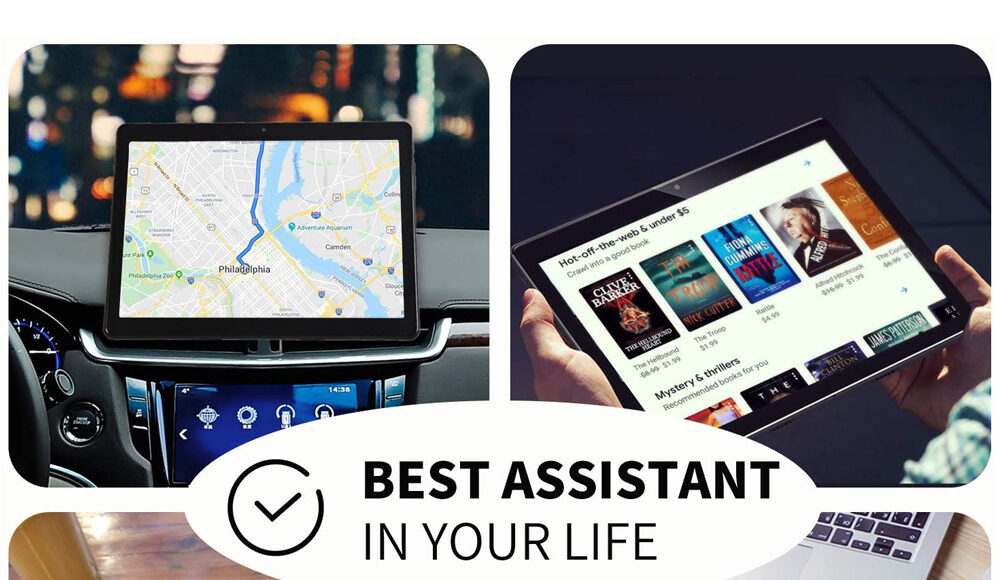How to Choose the Right Tablet for Your Needs starts here! In today’s tech-savvy world, tablets have become essential tools for productivity, entertainment, and communication. With a plethora of options available, it’s crucial to understand what features and specifications matter most to you. This guide will walk you through the key considerations to ensure you make an informed decision that fits your lifestyle.
The market is flooded with tablets, each boasting unique features and capabilities, which can be overwhelming. From screen size and battery life to operating systems and storage options, we’ll break down what you need to prioritize based on your specific requirements. Whether you’re a student, a professional, or simply looking for a device for casual use, there’s a perfect tablet waiting for you.
In today’s fast-paced world, the significance of effective communication cannot be overstated. Whether it’s in the workplace, among friends, or in public settings, how we convey our thoughts and ideas can greatly impact our personal and professional relationships. This article will explore the nuances of communication, delving into various styles and techniques that can enhance our ability to connect with others.### Understanding CommunicationAt its core, communication is the process of sharing information between individuals.
It encompasses various forms such as verbal, non-verbal, written, and visual communication. Each form plays a vital role in how we express ourselves and interpret the messages conveyed by others. Verbal Communication: This is the most common form of communication and involves the use of spoken or written words. The tone, pitch, and volume of our voice can significantly influence how our message is received.
For instance, a calm and steady tone can convey confidence and assurance, while a loud and aggressive tone may come off as confrontational. Non-Verbal Communication: Often referred to as body language, non-verbal communication includes facial expressions, gestures, posture, and eye contact. Research suggests that a significant portion of our communication is non-verbal. For example, crossing arms may indicate defensiveness, while maintaining eye contact can show engagement and interest.
Written Communication: Emails, text messages, reports, and social media posts fall under this category. Clarity and conciseness are crucial in written communication since the absence of vocal tones and body language can lead to misunderstandings. Utilizing proper grammar, punctuation, and spelling also enhances the professionalism of written correspondence. Visual Communication: This includes the use of images, graphs, charts, and videos to convey information.
Visual aids can complement verbal or written messages, making complex information more digestible. They can be particularly effective in presentations or educational settings, where engagement is key to understanding.### The Importance of Effective CommunicationEffective communication fosters understanding, builds trust, and enhances collaboration. In a professional setting, clear communication can lead to improved teamwork, higher productivity, and greater employee satisfaction. Conversely, poor communication can result in confusion, frustration, and conflicts.
1. Building Relationships
Good communication skills help create and maintain healthy relationships. When we listen actively and respond thoughtfully, we demonstrate respect for the other person’s opinions and feelings. This openness lays the foundation for trust, which is essential in any relationship.
2. Enhancing Teamwork
In collaborative environments, effective communication is crucial. It ensures that everyone is on the same page and that tasks are completed efficiently. Regular updates, clear expectations, and open lines of communication contribute to a cohesive team dynamic.
3. Conflict Resolution
Misunderstandings and disagreements are inevitable in any relationship. However, effective communication can help de-escalate conflicts. By approaching difficult conversations with empathy and a willingness to listen, parties can find common ground and work towards mutually beneficial solutions.
4. Influencing and Persuasion
In professional settings, the ability to persuade others is a valuable skill. This involves not only articulating your thoughts clearly but also understanding your audience’s perspective. Tailoring your message to resonate with your listeners can lead to more successful outcomes.### Tips for Improving Communication SkillsImproving communication skills is an ongoing process that requires practice and self-awareness. Here are some practical tips to help enhance your communication abilities:
1. Active Listening
Truly listening to others is a crucial component of effective communication. This means giving your full attention, avoiding interruptions, and providing feedback to show that you understand their message. Practicing active listening can foster deeper connections and improve interpersonal relationships.
2. Be Clear and Concise
When conveying your thoughts, strive for clarity. Avoid using jargon or overly complex language that may confuse your audience. Aim to be concise, getting to the point while providing sufficient information for understanding.
3. Be Mindful of Tone
Your tone can drastically alter the meaning of your message. Be aware of how your voice, facial expressions, and body language can influence how your message is perceived. Practice adjusting your tone to suit the context and audience.
4. Ask Questions
Engaging in dialogue rather than monologue can enhance communication. Asking open-ended questions encourages others to share their thoughts and feelings, fostering a more collaborative environment.
5. Provide Constructive Feedback
When offering feedback, focus on specific behaviors rather than personal attributes. Use the “sandwich” method—start with a positive note, address the area for improvement, and conclude with encouragement. This approach can help you deliver feedback more effectively.### Challenges in CommunicationDespite our best efforts, communication can sometimes pose challenges. Factors such as cultural differences, language barriers, and personal biases can hinder effective communication.
Here’s a closer look at some common obstacles:
1. Cultural Differences
Different cultures have distinct communication norms. What may be considered polite in one culture could be perceived as rude in another. Being aware of these cultural nuances is vital, especially in multicultural settings.

2. Language Barriers
Language differences can create misunderstandings and impede effective communication. Using simple language, avoiding idioms, and confirming understanding can help bridge these gaps.
3. Personal Biases
Our personal beliefs and experiences can color our perceptions and interpretations of messages. Practicing empathy and keeping an open mind can help mitigate the effects of biases.
4. Emotional Barriers
When individuals are stressed, angry, or upset, they may struggle to communicate effectively. Recognizing these emotional states and allowing time for processing can improve communication outcomes.### ConclusionIn conclusion, communication is an essential skill that influences various aspects of our lives. By understanding its different forms and practicing effective techniques, we can enhance our ability to connect with others. As we navigate the complexities of communication, let us remember the value of active listening, clarity, and empathy.
By fostering open and respectful dialogues, we can build stronger relationships and create a more harmonious environment—both personally and professionally. As we continue to improve our communication skills, we not only enhance our interactions but also contribute to a culture of understanding and respect.
Essential Questionnaire: How To Choose The Right Tablet For Your Needs
What should I consider when choosing a tablet?
Consider factors like screen size, battery life, operating system, storage capacity, and your primary use case (e.g., gaming, work, or media consumption).
Are more expensive tablets always better?
Not necessarily. Higher price tags often come with better features, but it’s important to assess whether those features match your needs.
Can I use a tablet for work purposes?
Yes, many tablets offer productivity features and apps that can support work tasks, especially with the addition of a keyboard and appropriate software.
Is it worth getting a tablet over a laptop?
It depends on your usage. Tablets are portable and convenient for casual tasks, while laptops are typically better for more intensive work.
How do I ensure a tablet is good for gaming?
Look for tablets with a powerful processor, high RAM, and a good graphics capability to ensure a smooth gaming experience.






